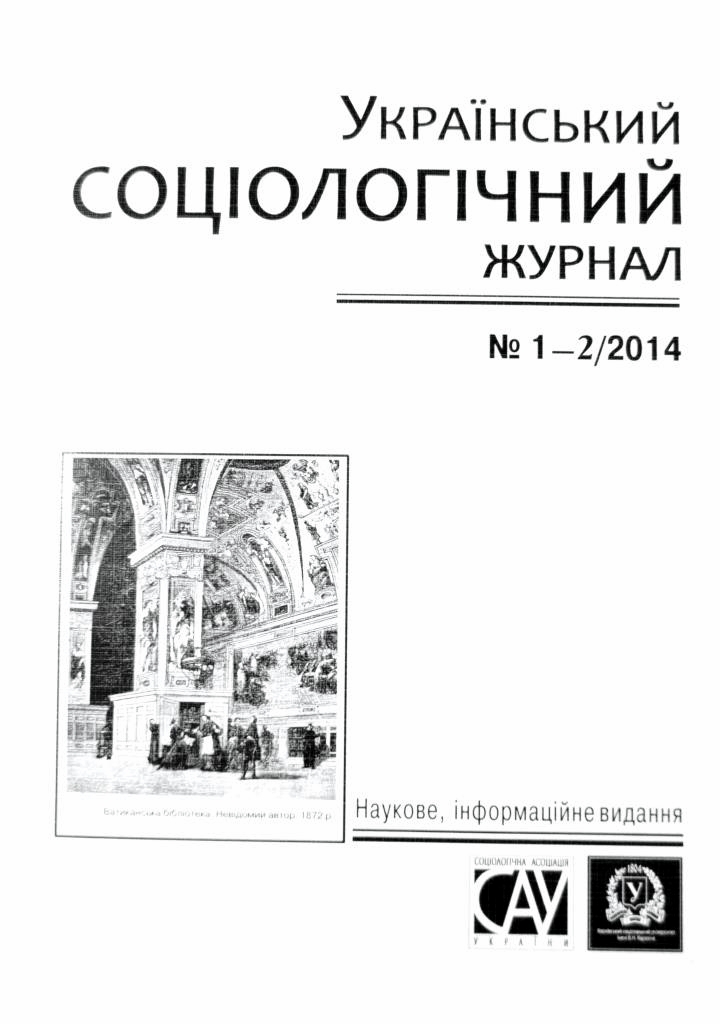Nongovernmental organizations as agents of HIV-prevention service provision in Ukraine
Abstract
Nongovernmental organizations constitute the only significant source of HIV prevention services in Ukraine. Many of these organizations were founded by and continue to be staffed by members of the populations most at-risk for HIV infection, particularly injection drug users. As these agencies develop and mature since their founding in the 1990s and early 2000s, their founders, directors, and staff increasingly occupy a liminal space in which they struggle to define themselves as HIV professionals with expertise in both the risks their clients face and their everyday needs, and the globalized world of HIV prevention financing and program development. This paper explores the ways in which HIV prevention service providers in Ukraine work to define this liminal space as one that enables them to traverse two seemingly disconnected worlds – one of international donors and national monitors and another of marginalized and vulnerable substance users. They formulate themselves not as elites but as experts through trainings, certifications, and networking with other similarly liminal service providers through national and international conferences, and continued expansion and refinement of services for their clients. At the same time, they remain cut off from the «inside knowledge» and decision-making power of the «true» elite, represented by AIDS clinic physicians, pharmacists, and other medical providers who control access to substitution therapy, antiretroviral medications, and other critical services and resources.
Downloads
References
Owczarzak J. A novel, bottom-up approach to promote evidence-based HIV prevention for people who inject drugs in Ukraine: protocol for the MICT (‘Bridge’) HIV prevention exchange project» [Electronic resource] / Owczarzak J., Phillips S., Filippova O. // Implementation Science 2014, 9:18. – Way of access : http://www.implementationscience.com/content/9/1/18
Booth R. E. Interventions with injection drugusers in Ukraine / Booth R.E., Lehman W., Dvoryak S., Brewster J.T., Sinitsyna L. // Addiction. – 2009. – 104. – P.1864 – 1873.
Ukraine Ministry of Health. Ukraine: Ukraine: National Report on Monitoring Progress towards the UNGASS Declaration of Commitment on HIV/AIDS. Kyiv 2010.
Owczarzak J. A view from the frontlines in Slavyansk, Ukraine: HIV prevention, drug treatment, and help for people who use drugs in a conflict zone / Owczarzak J., Karelin M., Phillips SD. // Drug Policy 2015 Jan. 26(1). – P. 6 – 7.
Sampson S. Beyond Transition: Rethinking Elite Configurations in the Balkans / Sampson S. // In : Hann C, ed. Postsocialism: Ideals, Ideologies and Practices in Eurasia. London: Routledge; 2002 – P. 297 – 316.
Pfeiffer J. Condom Social Marketing, Pentecostalism, and Structural Adjustment in Mozambique: A Clash of AIDS Prevention Messages // Med Anthropol Q. – 2004. – 18(1) – P. 77 – 103.
Pfeiffer J. The Struggle for a Public Sector: PEPFAR in Mozambique / J. Pfeiffer // In: Biehl J, Petryna A, eds. When People Come First: Critical Studies in Global Health. Princeton, NJ: Princeton University Press, 2013 – P. 166 – 181.
Abramson D. Civil Society and the Politics of Foreign Aid in Uzbekistan / D. Abramson // Central Asia Monitor 6 – 1999 – P. 1 – 12.
Mandel R. Seeding Civil Society / Ruth Mandel // In Postsocialism / ed. C. Hann. – London : Routledge, 2002 – P. 279 – 296.
Phillips S. D. Women’s Social Activism in the New Ukraine: Development and the Politics of Differentiation / Sarah D. Phillips. – Bloomington : Indiana University Press, 2008 – P. 91 – 95.




